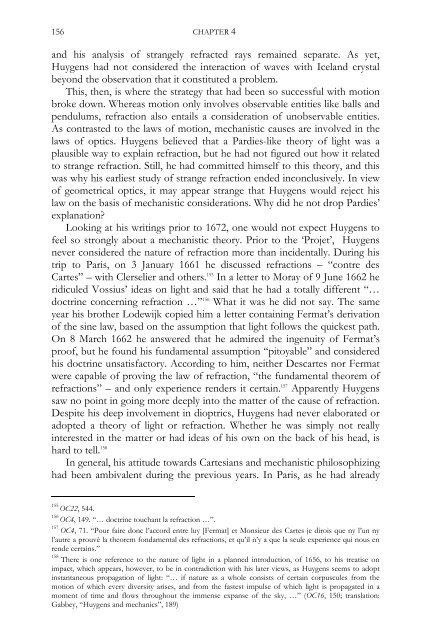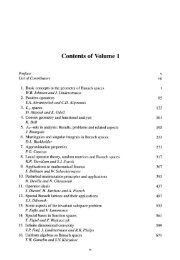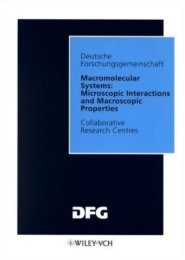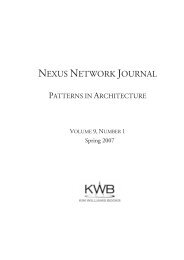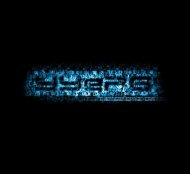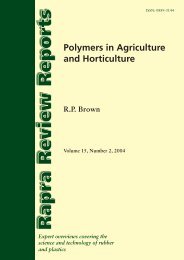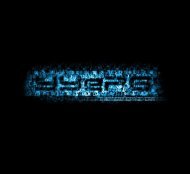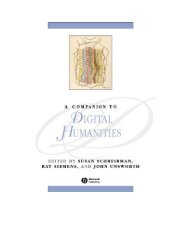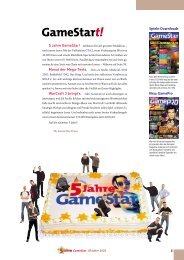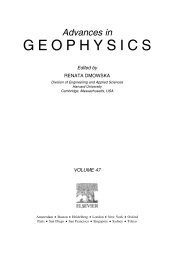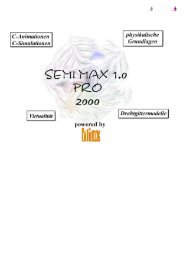Lenses and Waves
Lenses and Waves
Lenses and Waves
Create successful ePaper yourself
Turn your PDF publications into a flip-book with our unique Google optimized e-Paper software.
156 CHAPTER 4<br />
<strong>and</strong> his analysis of strangely refracted rays remained separate. As yet,<br />
Huygens had not considered the interaction of waves with Icel<strong>and</strong> crystal<br />
beyond the observation that it constituted a problem.<br />
This, then, is where the strategy that had been so successful with motion<br />
broke down. Whereas motion only involves observable entities like balls <strong>and</strong><br />
pendulums, refraction also entails a consideration of unobservable entities.<br />
As contrasted to the laws of motion, mechanistic causes are involved in the<br />
laws of optics. Huygens believed that a Pardies-like theory of light was a<br />
plausible way to explain refraction, but he had not figured out how it related<br />
to strange refraction. Still, he had committed himself to this theory, <strong>and</strong> this<br />
was why his earliest study of strange refraction ended inconclusively. In view<br />
of geometrical optics, it may appear strange that Huygens would reject his<br />
law on the basis of mechanistic considerations. Why did he not drop Pardies’<br />
explanation?<br />
Looking at his writings prior to 1672, one would not expect Huygens to<br />
feel so strongly about a mechanistic theory. Prior to the ‘Projet’, Huygens<br />
never considered the nature of refraction more than incidentally. During his<br />
trip to Paris, on 3 January 1661 he discussed refractions – “contre des<br />
Cartes” – with Clerselier <strong>and</strong> others. 155 In a letter to Moray of 9 June 1662 he<br />
ridiculed Vossius’ ideas on light <strong>and</strong> said that he had a totally different “…<br />
doctrine concerning refraction …” 156 What it was he did not say. The same<br />
year his brother Lodewijk copied him a letter containing Fermat’s derivation<br />
of the sine law, based on the assumption that light follows the quickest path.<br />
On 8 March 1662 he answered that he admired the ingenuity of Fermat’s<br />
proof, but he found his fundamental assumption “pitoyable” <strong>and</strong> considered<br />
his doctrine unsatisfactory. According to him, neither Descartes nor Fermat<br />
were capable of proving the law of refraction, “the fundamental theorem of<br />
refractions” – <strong>and</strong> only experience renders it certain. 157 Apparently Huygens<br />
saw no point in going more deeply into the matter of the cause of refraction.<br />
Despite his deep involvement in dioptrics, Huygens had never elaborated or<br />
adopted a theory of light or refraction. Whether he was simply not really<br />
interested in the matter or had ideas of his own on the back of his head, is<br />
hard to tell. 158<br />
In general, his attitude towards Cartesians <strong>and</strong> mechanistic philosophizing<br />
had been ambivalent during the previous years. In Paris, as he had already<br />
155 OC22, 544.<br />
156 OC4, 149. “… doctrine touchant la refraction …”.<br />
157 OC4, 71. “Pour faire donc l’accord entre luy [Fermat] et Monsieur des Cartes je dirois que ny l’un ny<br />
l’autre a prouvè la theorem fondamental des refractions, et qu’il n’y a que la seule experience qui nous en<br />
rende certains.”<br />
158 There is one reference to the nature of light in a planned introduction, of 1656, to his treatise on<br />
impact, which appears, however, to be in contradiction with his later views, as Huygens seems to adopt<br />
instantaneous propagation of light: “… if nature as a whole consists of certain corpuscules from the<br />
motion of which every diversity arises, <strong>and</strong> from the fastest impulse of which light is propagated in a<br />
moment of time <strong>and</strong> flows throughout the immense expanse of the sky, …” (OC16, 150; translation:<br />
Gabbey, “Huygens <strong>and</strong> mechanics”, 189)


